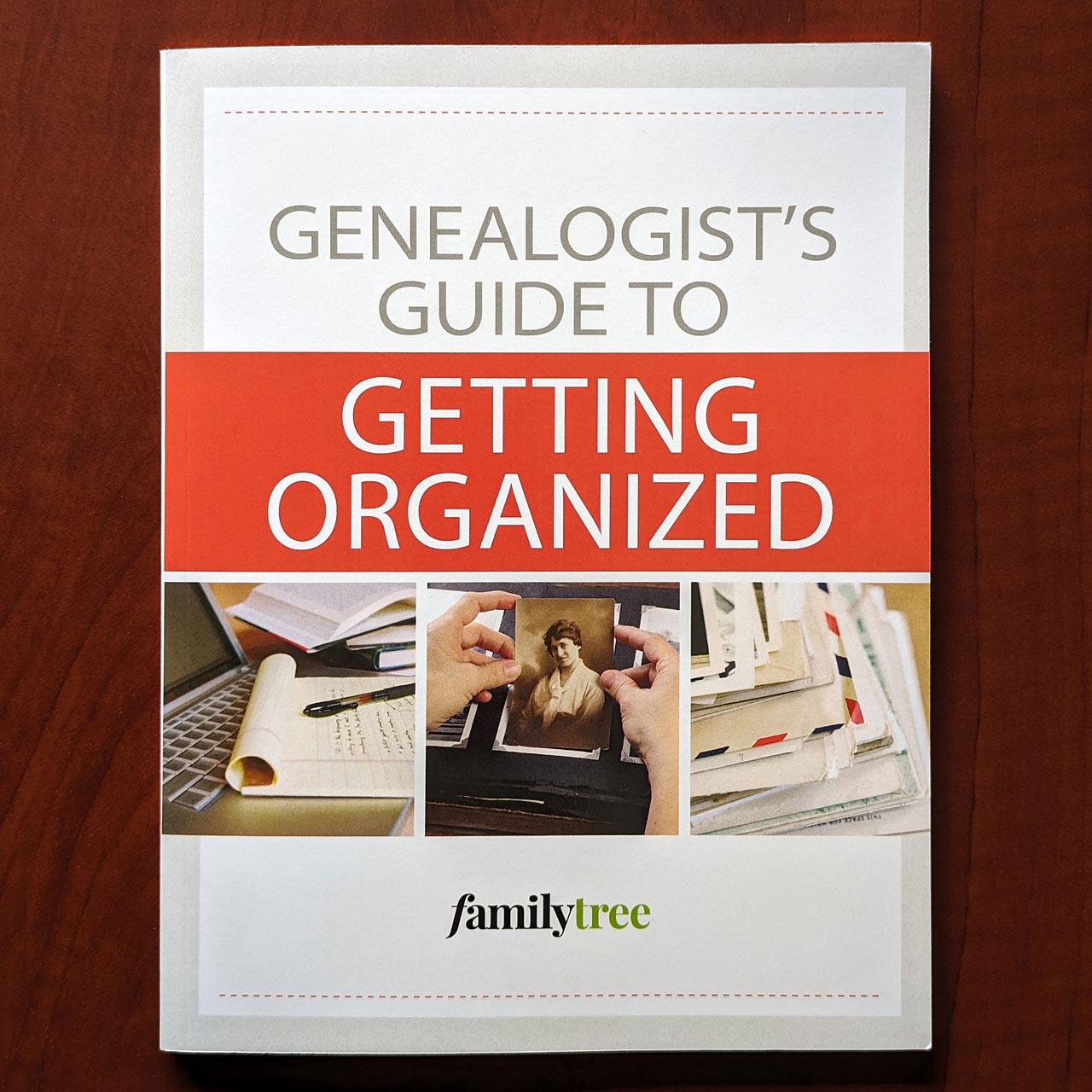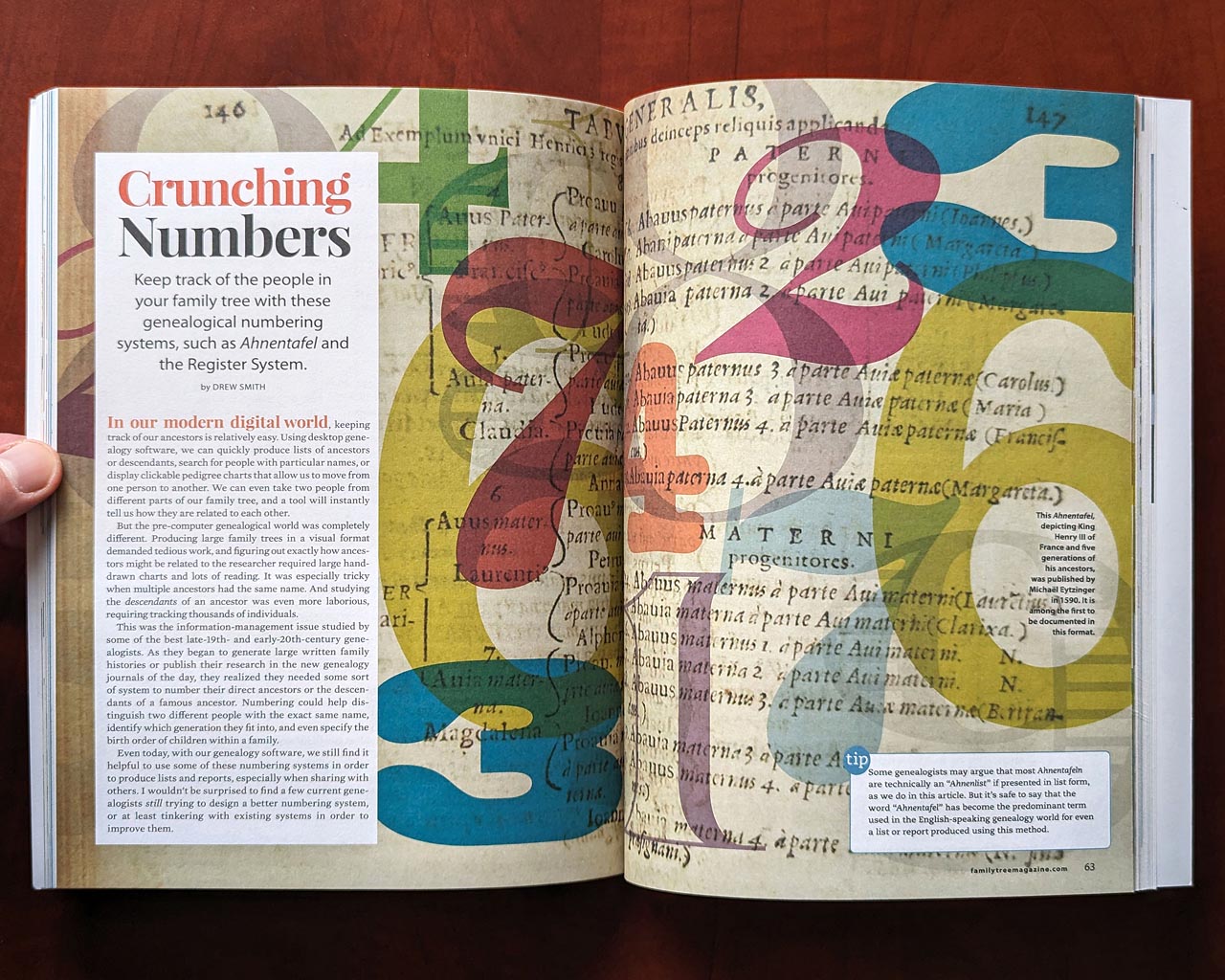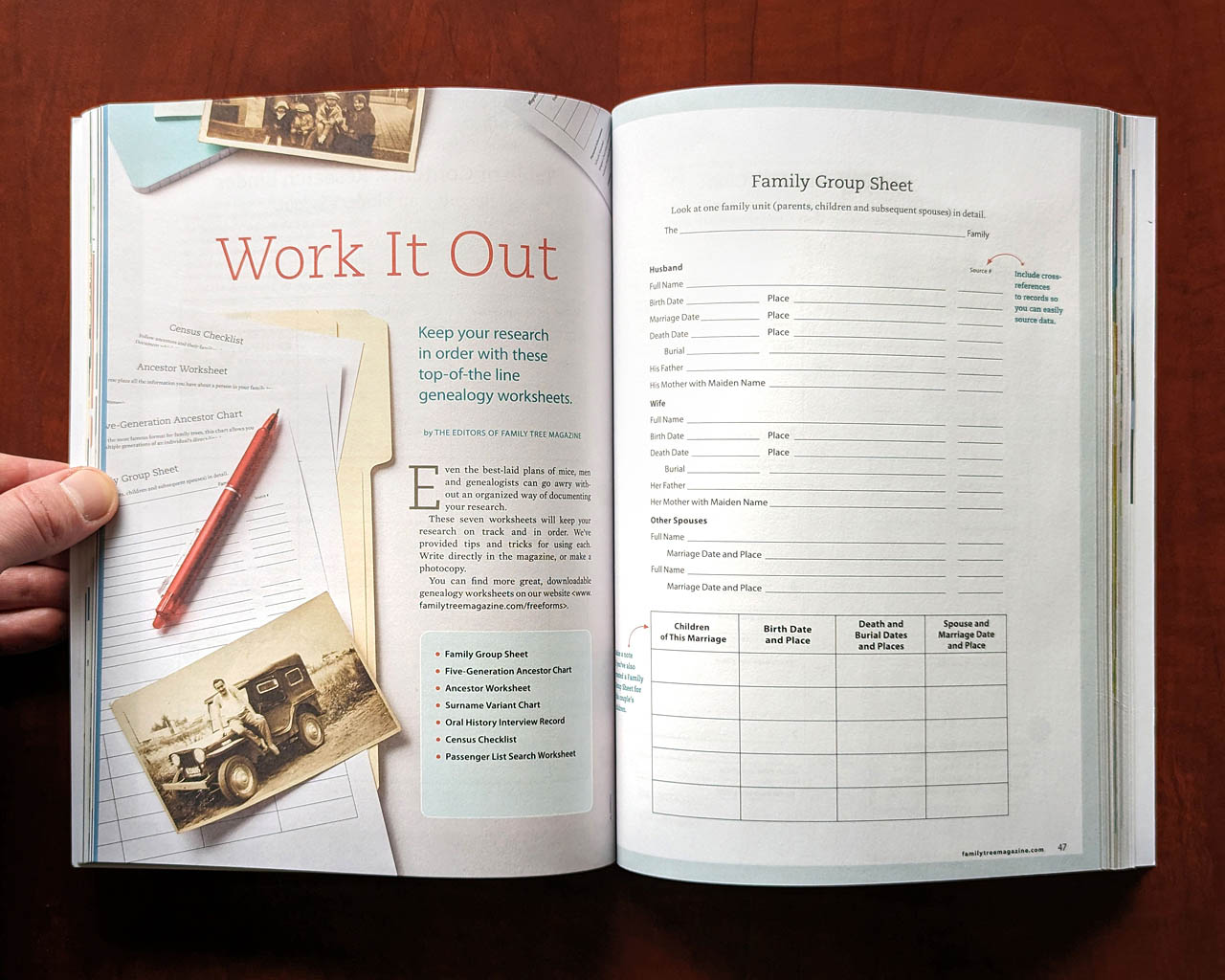Family Tree Magazine Store
Genealogist's Guide to Getting Organized - Print Edition
Genealogist's Guide to Getting Organized - Print Edition
Couldn't load pickup availability
Paperwork and pictures and planning… oh my! Whether you’re new to the genealogy game or an old hand by now, one thing is certain: This hobby creates a lot of files and projects. Is it possible to contain the chaos? Yes! This book will help you organize your time, photos, files, and records—all the necessary (but often unwieldy) resources of successful genealogical endeavors.
We’re not talking just file folders and sticky notes here! The Genealogist’s Guide to Getting Organized features the latest in organizing trends, apps, software, and research techniques. With advice from industry experts, you’ll discover the best methods for establishing order.
What’s Inside
Genealogist’s Guide to Getting Organized features:
- Essential information on how to organize your genealogy projects, files, and research using a variety of both online and offline tactics
- Step-by-step tips for time management, labeling files (both print and digital), planning out your yearly goals, and much more
- Checklists, charts, templates, and worksheets that can be filled out directly in the eBook
Who Should Get This Book
You’ll love Genealogist’s Guide to Getting Organized if…
- You just received the results of your DNA test and are ready to dive into genealogy research for the first time
- You’re curious about the latest storage systems for organizing all your genealogy paperwork and files
- You’re facing a specific research project that seems daunting, and you need to know how to tackle it
Excerpt: Sample Tips
Here are some tips you’ll find in Genealogist’s Guide to Getting Organized:
- Log your searches. A research log is a comprehensive list of sources you’ve searched or plan to search. Information logged should include: source name and URL or location, the purpose of each search, the date you performed the search, the related person or family, notations and source citations, and comments.
- In source citations, err on the side of too much information. Source citations are a key best practice for helping you document and re-find data. When creating them, include as much information as you can—it's easy to cut details from a source citation that's too long than it is to remember key information in a citation that's too short.
- Cross-reference with tags. Programs like Evernote and Trello allow you to tag items with keywords, making them easier to search. Create tags for names, dates, places and other subjects.
Contents of Genealogist’s Guide to Getting Organized:
Part One: Organizing Your Research and Goals
Top Secrets: Professional genealogists share their 12 top tips for staying organized, catching every clue, and making the most of your research minutes. By Janine Adams
Habits to Make: Your genealogy life will be more organized and efficient when you make these 17 habits part of your research routine in 2017. By Dana McCullough
All in a Day's Work: If all you’ve got is a Saturday to organize your genealogy, make it count with these tips for a successful one-day organization project. By Andrew Koch
Go for the Goal: Stay on task with a genealogy resolution for each month. We’ve got your game plan with simple, customizable steps. By Sunny Jane Morton
Captain's Log: Make sure your stellar research log includes these six key pieces of information. By Kerry Scott
Showing Your Work: Though not glamorous, citing your sources can reap great rewards for your research. Here's how to start. By Andrew Koch
Part Two: Organizing Files and Clutter
Ties That Bind: Organize your research for easy travel and sharing by creating family history binders. Here's how to get started. By the Editors of Family Tree Magazine
Work It Out: Keep your research in order with these top-of-the-line worksheets. By the Editors of Family Tree Magazine
Your-Digital-Files.jpg: Clean up your computer with this guide to managing and labeling digital files. By Rick Crume
Crunching Numbers: Keep track of the people in your family tree with these genealogical numbering systems, such as Ahnentafel and the Register System. By Drew Smith
The End of the Paper Trail: Cutting paper clutter will make you better organized and sharpen your genealogy focus. Get started with these 12 less-paper strategies. By Denise Levenick
Keep or Toss?: Declutter your genealogy life with these three steps for determining what to keep and what to trash. By Lisa A. Alzo
Part Three: Tech Tools for Organizing Research
Calls to Order: End family collection chaos! These seven tech tools help you turn your archive of old photos, papers and artifacts into an organized research resource. By Denise May Levenick
Online Tree or Genealogy Software: Where to Keep Your Data: Should you store your family history research in genealogy software, an online family tree or some combo of the two? We’ll run down the best options and help you choose. By Rick Crume
Data Entry: Genealogy software programs are robust tools for building your family tree. Here’s how to best add key facts to them: names, dates and places. By Rick Crume
Share








